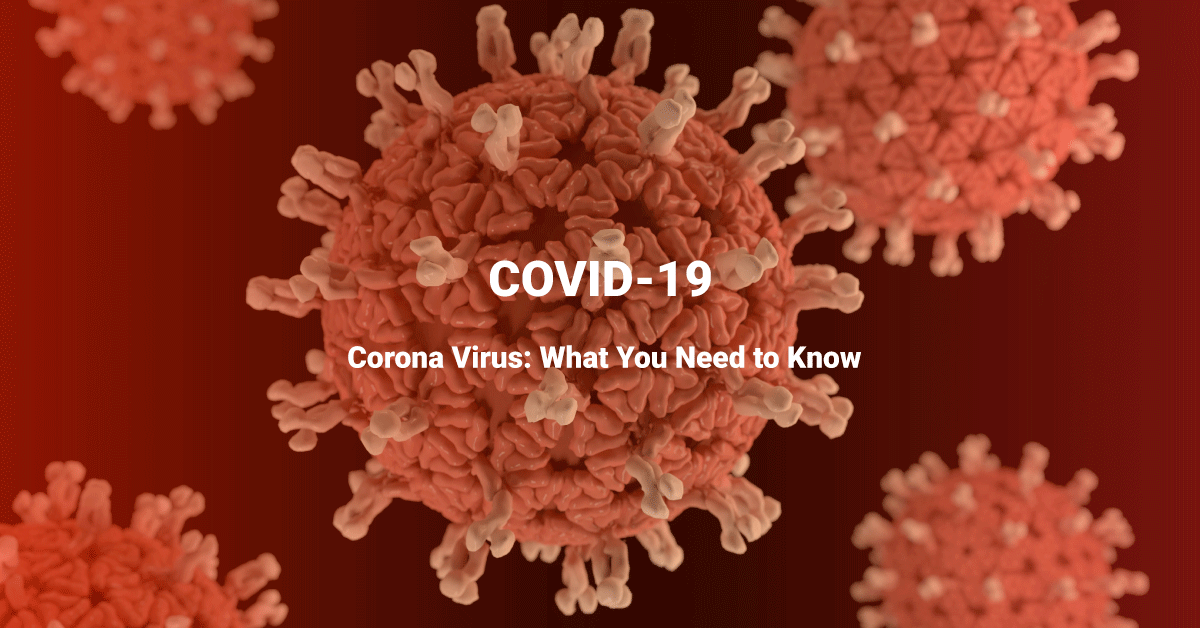Whether or not you pay attention to current news, chances are that you have heard about the coronavirus disease. Almost everyone knows about the COVID-19 outbreak that has infected more than 100,000 people worldwide in over 100 countries. In the Philippines, total confirmed cases have reached 64, and the government will be implementing a community quarantine of Metro Manila.
Amidst the abundance of news from word of mouth, social media, and international headlines, there is also misinformation going around that only spreads fear and confusion in the community. This factual and concise briefer of the coronavirus will help you be properly informed about the disease and what you can do to keep you and your loved ones safe.
What is COVID-19? Where did it come from?
Coronaviruses are a family of disease-causing viruses that range from common colds to more serious illnesses like pneumonia. Last December 2019, a novel coronavirus strain (named SARS-COV-2) was first detected in Wuhan, the capital city of the Hubei province in China. This new strain is what causes the disease now called the Coronavirus Disease 2019 (COVID-19).
COVID-19 is a respiratory disease whose severity ranges from flu-like symptoms to more severe respiratory problems. The disease is highly transmissible or easily spread from person to person, although most cases are just mild and can be treated.
How does the disease spread?
The main cause of transmission of the disease is through close contact with an infected person. Respiratory droplets from when the infected person coughs or sneezes may enter the body through the nose or the mouth. You can also get the disease from contact with a surface or object contaminated by the virus and then touching your nose or mouth.
From what started as isolated cases in Wuhan, COVID-19 has now caused a pandemic, spreading to more than 100 countries.
What are the symptoms?
Although easily spread throughout the community, most cases of COVID-19 (approximately 80% of cases) are only mild or do not show any symptoms. Some symptoms of COVID-19 are similar to that of an influenza infection. Here are some of the most common symptoms:
- Dry cough
- Fever
- Runny nose
- Shortness of breath
- Sore throat
- Chest pains
- Diarrhea
These symptoms may appear 2 to 14 days after exposure to the virus.
What can I do to prevent getting and spreading the disease?
The best way to prevent contracting the virus is to avoid close contact with an infected person. This also means to temporarily avoid going to crowded areas and large gatherings. Maintain at least a 1-meter distance from anyone who is coughing or sneezing.
You should also practice everyday preventive actions, like frequently washing your hands with soap and water for at least 20 seconds, or with alcohol/hand sanitizer (at least 60% alcohol) if soap and water are not available.
Additionally, avoid touching your eyes, nose, and mouth without washing your hands beforehand.
Should I wear a mask?
It is recommended to wear a mask only if you are sick or are taking care of someone who is sick. If you are a healthy individual, the chances of you getting the virus are low as long as you practice the everyday preventive actions mentioned above.
What can I do if I show symptoms?
If ever you came in close contact with an infected individual or have recently been to a place with a COVID-19 outbreak and you are feeling unwell, self-isolate if you can by staying at home. Mild symptoms like headaches, runny nose, and low-grade fever can be nursed at home until you recover
In case you need to go out of the house, wear a mask to avoid transmitting the virus to other people. If a mask is not available, cover your mouth and nose with a tissue when you cough or sneeze, and properly dispose of the tissue and disinfect your hands.
If you develop other symptoms like coughing, fever, and difficulty breathing, immediately seek medical attention to know whether you have COVID-19 or another condition.
What drug or treatment can I take for COVID-19?
No drug or vaccine has yet been developed for COVID-19. There have been many efforts to develop possible drug treatments against the virus, but these are still under investigation. However, those who show symptoms need to receive some medical care or hospitalization in severe cases.
The best ways to prevent getting the virus are to practice the everyday preventive actions mentioned above.
Should I be worried about COVID-19?
It is normal to worry about COVID-19 and to want to protect ourselves and others from this infection. However, we must remember that most cases of COVID-19 infection are mild or do not show any symptoms. It is important that we stay calm and remain informed in light of this outbreak.
Instead, we can channel our concern into preventive and protective actions against the virus. Constantly practice everyday hygienic actions, follow your community’s safety guidelines, and inform yourselves and others about factual news about the virus. With these few steps, we can do our part in making the world a healthier place.
